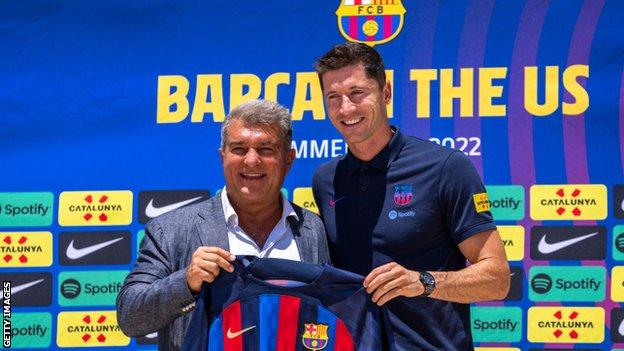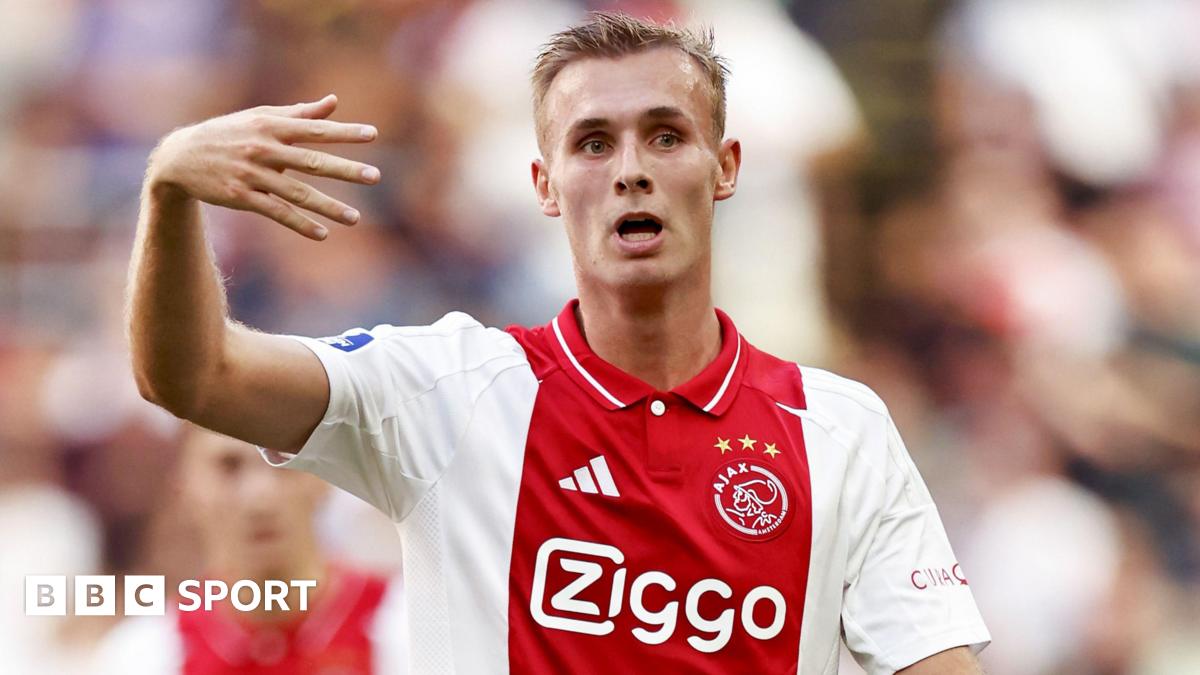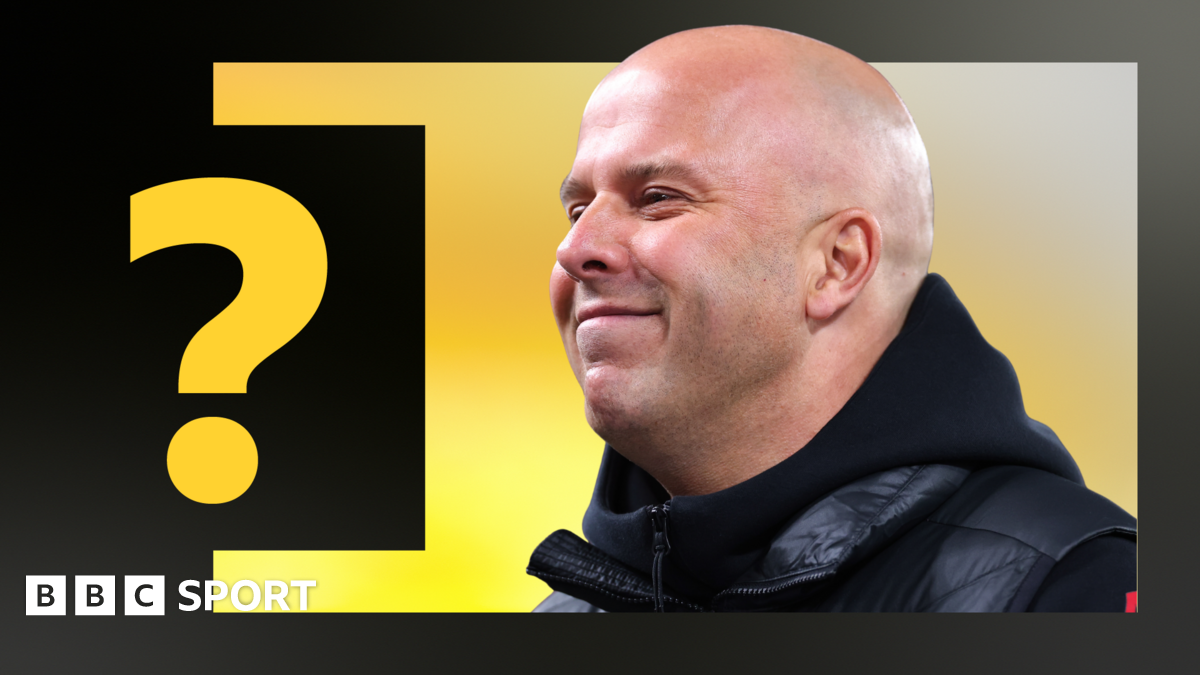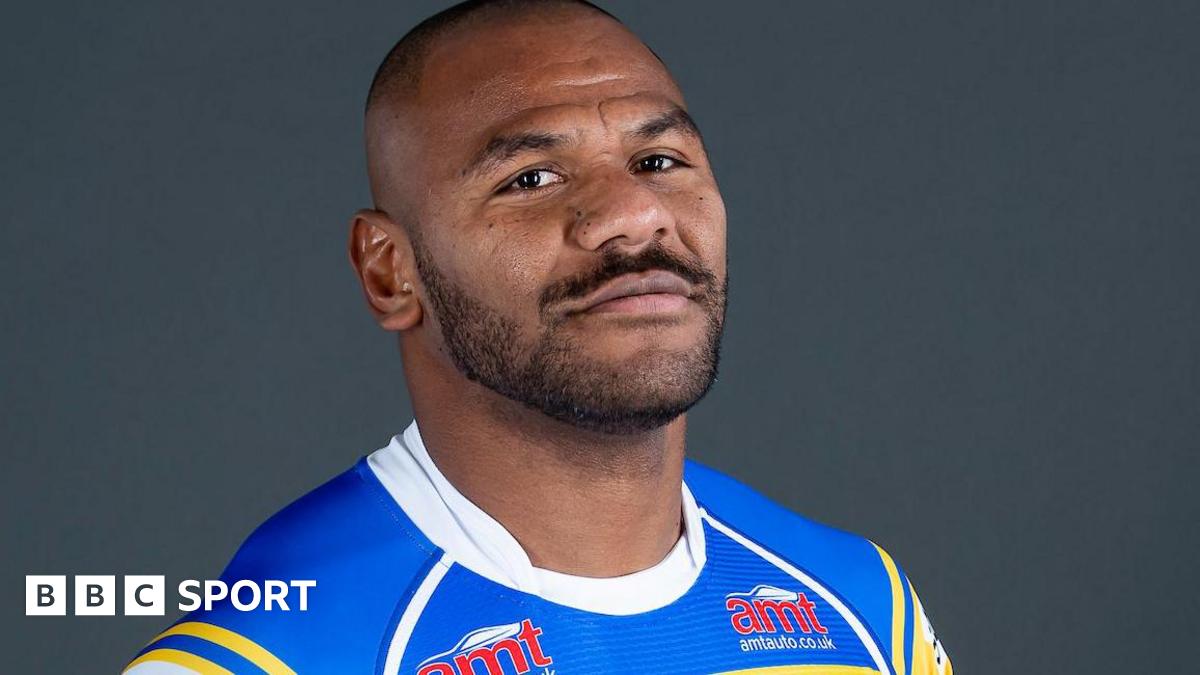ARTICLE AD BOX
 Raphinha, a summer signing from Leeds, could cost Barcelona up to £55m
Raphinha, a summer signing from Leeds, could cost Barcelona up to £55mLast month Barcelona economic vice-president Eduard Romeu asserted he needed 500m euros to "save the club".
Now, six weeks later, the fallen Spanish giants are splashing cash in the transfer market. Big time.
Around £100m has been splurged on Leeds' Raphinha and Bayern Munich's Robert Lewandowski, and similarly big-money moves for Sevilla's Jules Kounde and Manchester City's Bernardo Silva are being pursued.
Aggrieved Bayern boss Julian Nagelsmann lamented that Barca are "the only club that doesn't have money but can buy any player," and his frustration summed up the mood of many observers who cannot understand how a club with debts of £1bn can spend so heavily.
But that perception is somewhat misguided, and the answer is simple. Here, we examine Barca's extraordinary financial summer, and explain why it's a massive all-or-nothing gamble for a club who find themselves in Las Vegas this weekend preparing to face Real Madrid on Saturday.
Laporta pulls the levers
On 16 June, Barca's members - who own the club - voted in favour of allowing president Joan Laporta to execute some exceptional measures, which have become known as economic 'levers', in order to raise a significant cash injection.
The first lever saw the club sell 10% of its domestic television rights over the next 25 years to US investment fund Sixth Street, in return for an immediate payment of around £200m - enough, in other words, to comfortably cover Barca's summer signings so far.
And on Friday the club announced that they had sold a further 15% of those rights to Sixth Street, bringing in a reported extra £300m.
There are further plans to sell 49.9% of the club's merchandising operation in the near future.
Together those levers should provide an up-front cash injection of more than £600m. So, yes, Barca now have money thanks to these new financial deals, even if they come with the long-term cost of reduced TV and merchandising revenue. And they also represent a massive gamble.
Impatient for glory days to return
 Robert Lewandowski joined Barcelona this summer after scoring 50 goals in 46 games last season, helping Bayern Munich win a 10th straight Bundesliga title
Robert Lewandowski joined Barcelona this summer after scoring 50 goals in 46 games last season, helping Bayern Munich win a 10th straight Bundesliga titleFollowing the mess left behind by former president Josep Maria Bartomeu, perhaps the sensible approach to rebuilding Barca would have been a slow and steady reconstruction of the club's infrastructure, cutting costs and placing more reliance on an outstanding youth system.
But Laporta does not have the time or patience for that.
A charismatic populist with a penchant for grand gestures, he does not want to be remembered as "the man who helped revive Barca by laying solid foundations for future success". That might be sensible but it is also boring, and Laporta doesn't do boring.
Instead, he wants to go down in history as the heroic knight in shining armour who quickly restored past glories - for which he was also the part-architect during his first presidential stint between 2003 and 2010.
After a barren run of just one Spanish Cup title in three years, he is impatient for success. He wants to win major trophies, and he wants to win them now.
So Laporta has pulled his famous levers, raising enough cash to theoretically build a squad capable of winning silverware this season. In turn that could, also theoretically, lead to more revenue through increased prize money and TV rights (especially in the Champions League, which have not been sold), along with the other commercial opportunities that can derive from a world-beating team.
But the extent of the gamble cannot be underestimated. Right now, we do not know whether Raphinha will step up to the next level; whether Lewandowski (34 next month) can avoid age-related decline; whether Ousmane Dembele can avoid injury; whether teen stars Pedri, Gavi and Ansu Fati can continue their emergence; whether manager Xavi can sort out the defence.
Only time will tell, and the gamble is even bigger because it is a one-time-only deal. Conjuring a short-term cash injection by selling off the club's commercial assets is, surely, an unrepeatable trick. Laporta's levers cannot become an annual occurrence, so this summer's moves - both on and off the pitch - simply must pay off.
More movements ahead?
Notwithstanding Laporta's financial manoeuvrings, there is clearly also a need for Barca to become more effective in the transfer market than we have witnessed in recent years.
One immediate aspect of that process is offloading a host of unwanted players including Memphis Depay, Martin Braithwaite, Miralem Pjanic and Samuel Umtiti - a difficult task considering their high wages and, in some cases, lengthy contracts.
Then, of course, there is Frenkie de Jong. His case is different because, in an ideal world, Xavi would keep him. But the brilliance of Pedri and Gavi mean that De Jong is not a guaranteed starter, and he is therefore expendable if the price is right.
Crucially, that price includes not only the transfer fee but also finding an agreement over the wages deferred by the Dutchman in the last couple of years and now due to be paid.
That negotiation and De Jong's reluctance to join a club outside the Champions League are major stumbling blocks in completing his proposed move to Manchester United, which will probably also determine whether Barca can seriously pursue Silva.
So this intriguing summer contains more twists and turns, before the onset of a truly tumultuous season for the Catalan club. If the gamble comes off, Barca's decline will have been swiftly halted and Laporta will look like a genius; if it fails, the club's fall could become even steeper.

- 'We bleed craft beer': Can BrewDog's CEO steer the Good Ship through the storm of controversy?
- Why hasn't athletics cracked America? The Sports Desk explores its struggles in the US


 2 years ago
20
2 years ago
20








 English (US) ·
English (US) ·